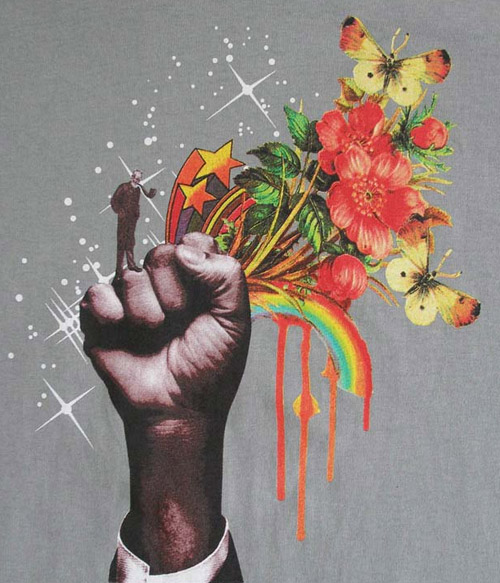participation not false representation
Mark Barrett | 30.04.2007 12:50 | Social Struggles | Zapatista

Power to Imagination
law-making is mostly done through unaccountable, overpowerful,
unrepresentative channels.
"None can love freedom heartily, but good men; the rest love not
freedom, but licence"
And where once these channels helped to free us from the brutal world
of kings, they now constitute a democratic trap. Though told we live
in a democratic state, we are not yet truly free.
If we really want humanity & freedom to flower, we must work together
to create new political conditions. This is envisaged as a new
constitution of governance, built from the ground up, by ordinary
people in common cause. An inclusive, decentralised, movement that
eventually transforms the system. So that one day political
decision-making is as it should be: locally centred, popular,
non-hierarchical, transparent and, most important of all, accountable
to people.
This ideal of political, rather than merely liberal democracy is
closely aligned with the positive republican tradition of democratic
thought. This was once championed by Jean Jacques Rousseau and is
today found operating, to some degree [known also as direct democracy]
in his native Switzerland.
Rousseau believed representative democracy tended to create an elite
ruling class, because of its emphasis on election rather than
participation. He pointed out that, although it was undoubtedly an
improvement on the rule of kings that preceded it, representative
democracy was by no means government by the people.
Under the positive republican tradition, 'liberty under the law' is
the idea that good laws can make us more free. But this theory also
states that good laws are only possible when ordinary people are able
to participate in framing them. Without regular, popular participation
in law-making, the state will invariably make bad laws, either because
it over-protects the interests of an influential and domineering few
[often banks, corporations and large landowners], or because it fails
to articulate or take into account the 'aspirations of the powerless
majority.'
Under our much vaunted systems of representative 'liberal democracy',
this is exactly what has happened, to our great and abiding
impoverishment.
To counter this, it is necessary to build alternative structures of
power, independently and from the ground up. The 'democratisation of
all spheres of life,' especially in the places we live and work, is
the key to transforming the whole of our political constitution,
community by community, from below.
This is an introduction to the ideal of political democracy.
www.rev-pmt.blogspot.com
Mark Barrett
 e-mail:
marknbarrett@gmail.com
e-mail:
marknbarrett@gmail.com
 Homepage:
http://www.rev-pmt.blogspot.com
Homepage:
http://www.rev-pmt.blogspot.com